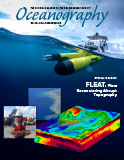Full Text
MARLEY JARVIS: Outreach and Education Specialist, Institute for Learning & Brain Sciences, University of Washington, [email protected]
Degree: When, where, what, and what in?
I earned my PhD in biology in 2014 from the Oregon Institute for Marine Biology (OIMB), part of the University of Oregon located in the city of Charleston. My dissertation focused on plankton ecology across nearshore fronts.
Did you stay in academia at all, and if so, for how long?
I primarily applied for museum jobs after earning my PhD, though I taught a marine biology course at the University of Oregon while applying and interviewing for positions. While I am now back at a university, so have returned to academia, I do not have a research position.
How did you go about searching for a job outside of the university setting?
I spent a lot of time volunteering and chatting with folks in different kinds of positions to understand what nonacademic job titles meant. This helped me get a sense for what different positions entailed, and what I might be qualified for and interested in doing.
Is this the only job (post-academia) that you’ve had? If not, what else did you do?
I worked at a science museum for a few years before my current job.
What is your current job? What path did you take to get there?
I am a science communication professional for the Institute for Learning & Brain Sciences (I-LABS) at the University of Washington in Seattle. I-LABS is a large, interdisciplinary research institute that focuses on human learning and the brain. In addition to a large research program, I-LABS has a full-time outreach and education team consisting of PhD-trained scientists; I am a part of that team. My primary role is to translate current research into trainings and other materials, as well as into resources for educators, policymakers, and the general public.
I arrived at my current position by following my interest in science outreach, education, and communication work. After teaching briefly at the University of Oregon, I accepted a position at Pacific Science Center, a science museum in Seattle, Washington. I worked in a department focused on incorporating current research into museum exhibits, events, and programs, eventually advancing to supervisor and overseeing a Science Communication Fellowship program that trained hundreds of local scientists in outreach and communication skills. When I left the museum, it was to take my current position at the University of Washington.
What did your oceanographic education (or academic career) give you that is useful in your current job?
Understanding how science research works and how to think critically and evaluate methods. My education also taught me how to read scientific papers effectively and conduct a literature review.
Is there any course or other training you would have liked to have had as part of your graduate education to meet the demands of the job market?
Some business education and computer science/coding. Writing.
Is the job satisfying? What aspects of the job do you like best/least?
Yes, I’m very happy in my position. I love thinking about the best way to communicate information and having some creative freedom to see that through. I’ve given lots of talks and training sessions, recorded podcasts, helped produce videos, developed illustrations, and voiced and drawn an animated short film. The variety and creativity that come into play in my work as a science communication professional is quite fun. I also love the variety of people with whom I interact in the workshops and talks I give. It is like teaching, but without the grades and academic bureaucracy.
Do you have any recommendations for new grads looking for jobs?
Your science PhD or master’s degree shouldn’t be the bulk of your resume’s work experience. You likely won’t get a job because of your degree, though it may help you once you’re in the position. You’ll need to be able to show you have the skills for a specific job, regardless of your degree. Figure out what position titles mean—nonacademic jobs use words like “coordinator” or “specialist,” and these terms mean different things in different fields. You need to be able to describe your skills in nonacademic language.

